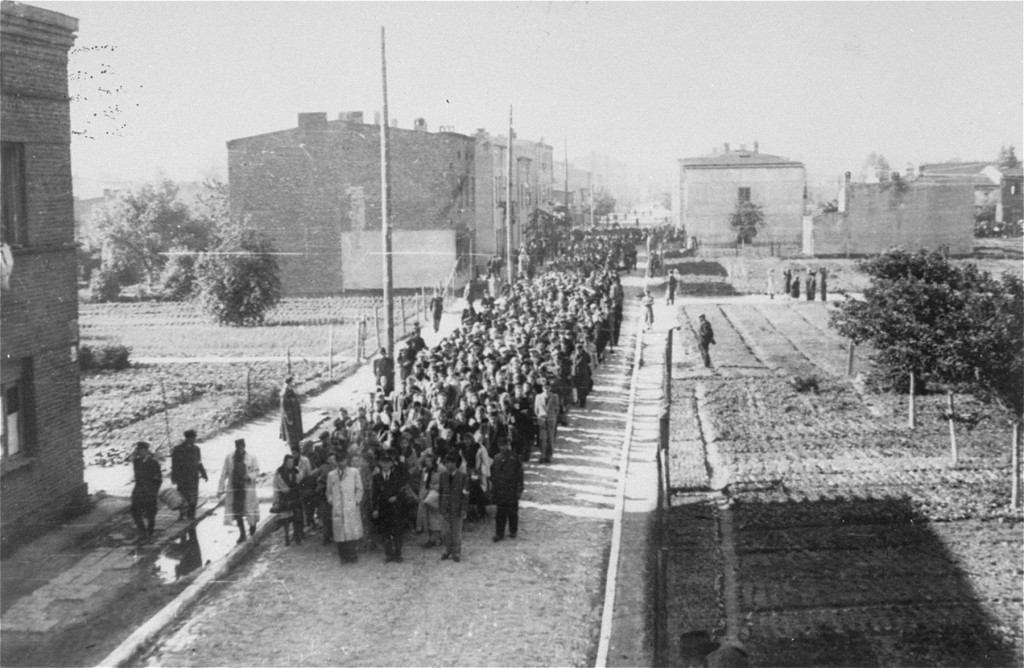
Anonymous Girl Diarist from the Lodz Ghetto
The Jewish children of Lodz suffered unfolding harsh realities after the German invasion of Poland. Some of the children, among them an anonymous girl diarist, recorded their experiences in diaries. Their voices offer a view into the struggle of a community and its young to live in spite of the most difficult circumstances.
Diary Excerpts
“When it's so cold, even my heart is heavy. There is nothing to cook today; we should be receiving three loaves of bread but we will be getting only one bread today. I don't know what to do. I bought rotten and stinking beets from a woman, for 10 marks. We will cook half today and half tomorrow. Does this deserve to be called life?” —Anonymous girl diarist, March 6, 1942
“Beautiful, sunny day today. When the sun shines, my mood is lighter. How sad life is. When we look at the fence separating us from the rest of the world, our souls, like birds in a cage, yearn to be free. Longing breaks my heart, visions of the past come to me. Will I ever live in better times?” —Anonymous girl diarist, March 7, 1942
Discovery of the Diary
In July 1945, a partial diary was found in the area of the ghetto of Lodz, Poland. The diary had no identifiable author. The only clue to her name comes from a note copied into the diary, which reads "Dear Esterka and Minia."
Although the exact identity of the author is unknown, a great deal can be gleaned from her writings. Her family, all of whom were employed in the workshops, including her parents, 17-year old sister, and 16-year-old brother, are mentioned. The fact that the writer does not work perhaps indicates that she is the youngest member of her family. The diary is written in Polish, confirming that the author is either from Lodz or one of the surrounding villages. The entries, dated between late February and March 1942, reveal the author's daily life and focus primarily on the two overriding themes of ghetto life, hunger and deportations.
Critical Thinking Questions
Why are diaries an important part of the historical record?
What makes children’s diaries distinct?
How are some of these accounts different from that of Anne Frank?
Investigate the lives of children in the ghettos.

